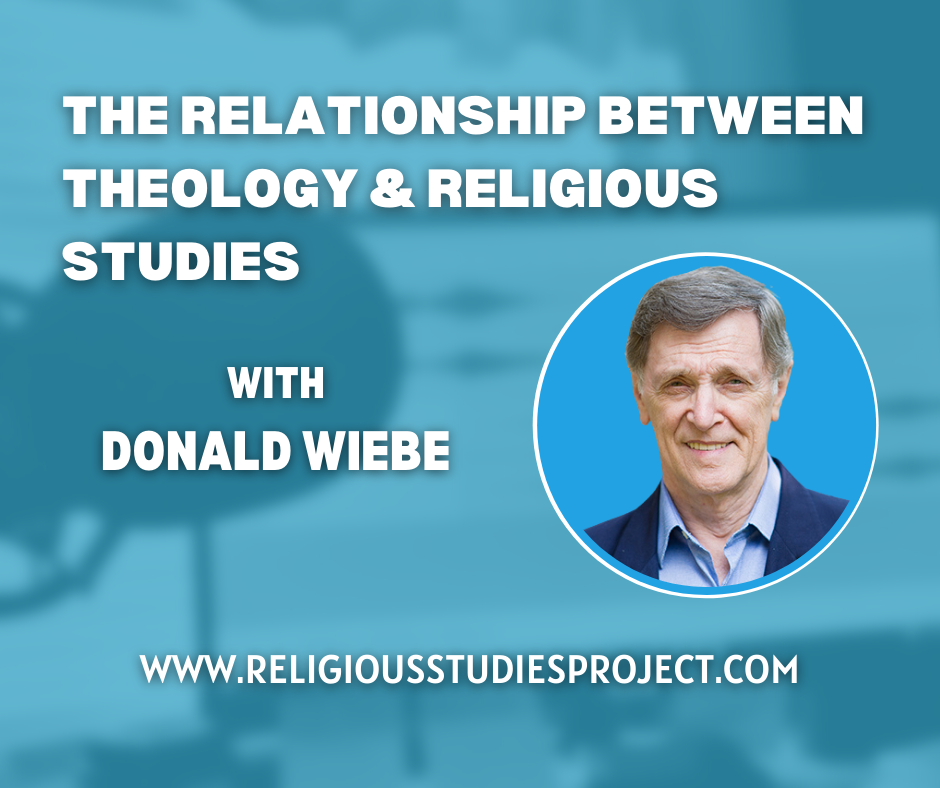Our interview this week features Chris speaking to Professor Donald Wiebe from the Faculty of Divinity at Trinity College in the University of Toronto on the relationship between Theology and Religious Studies.
Ed. note. Out of necessity this interview was not recorded on our normal equipment, and we apologise for the poorer quality of the sound this week.
The relationship between Theology and Religious Studies is not a simple one. David Ford writes that at its broadest, theology is thinking about questions raised by and about religions (2000:3). These questions are largely directed towards notions of transcendence (typically gods), incorporate doctrinal issues and are “essentially a second-order activity arising from ‘faith’ and interpreting faith” (Whaling, 1999:228-229). Essentially, theology is thinking about religion from within religion – although when most people refer to “Theology”, what they mean is “Christian Theology”.
It is generally accepted—at least as far as most academics are concerned—that there is a distinct difference between religious studies and theology. This is succinctly summarised by Ninian Smart’s statement that “historical and structural enquiries, such as sociology, phenomenology, etc., […] are the proper province of [the study of] Religion, and the use of such materials for Expressive ends […is] the doing of Theology” (in Wiebe, 1999:55).
As you shall see from this interview, however, things are much more complicated, and Professor Wiebe is particularly qualified to present his own take on the relationship between these two distinct disciplines. His primary areas of research interest are philosophy of the social sciences, epistemology, philosophy of religion, the history of the academic and scientific study of religion, and method and theory in the study of religion. He is the author of a number of books, including Religion and Truth: Towards and Alternative Paradigm for the Study of Religion (1981), The Irony of Theology and the Nature of Religious Thought (1991), and, of particular relevance to this interview, The Politics of Religious Studies: The Continuing Conflict with Theology in the Academy (1999). In 1985 Professor Wiebe, with Luther H. Martin and E. Thomas Lawson, founded the North American Association for the Study of Religion, which became affiliated to the IAHR in 1990; he twice served as President of that Association (1986-87, 1991-92).
This interview was recorded at the European Association for the Study of Religions‘ Annual Conference in Budapest in September 2011, where Professor Wiebe also presented a particularly relevant paper with his colleague Luther H. Martin, entitled “Religious Studies as a Scientific Discipline: The Persistence of a Delusion”. Out of necessity it was not recorded on our normal equipment, and we apologise for the poorer quality of the sound this week.
Jonathan Z Smith: “[R]eligion is an inextricably human phenomenon. […] Religious studies are [therefore] most appropriately described in relation to the Humanities and the Human Sciences, in relation to Anthropology rather than Theology. What we study when we study religion is one mode of constructing worlds of meaning, worlds within which men find themselves and in which they choose to dwell.” (1978, Map is Not Territory, 290)
References:
- Ford, David F. (2000 [1999]). Theology: A Very Short Introduction. Oxford: Oxford University Press.
- Whaling, Frank (1999). “Theological Approaches” in Peter Connoly (ed.), Approaches to the Study of Religion. London: Cassell, pp. 226-274.
- Wiebe, Donald (1999). The Politics of Religious Studies: The Continuing Conflict with Theology in the Academy. New York: St Martin’s Press.










